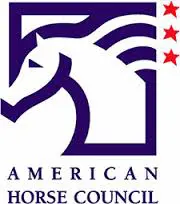H-2B Reform Bill Introduced
The following is a Washington Update from the American Horse Council.
 On October 29, 2015 Senators Thom Tillis (R-NC), Barbara Mikulski (D-MD), Mark Warner (D-VA), and Bill Cassidy (R-LA) introduced the Save our Small and Seasonal Businesses Act of 2015. The bill would make many needed reforms to the H-2B temporary, non-agricultural worker program that will make it less burdensome for employers, including those in the horse industry to use.
On October 29, 2015 Senators Thom Tillis (R-NC), Barbara Mikulski (D-MD), Mark Warner (D-VA), and Bill Cassidy (R-LA) introduced the Save our Small and Seasonal Businesses Act of 2015. The bill would make many needed reforms to the H-2B temporary, non-agricultural worker program that will make it less burdensome for employers, including those in the horse industry to use.
The H-2B program is used by members of the horse industry, principally horse trainers and owners who cannot find American workers to fill semi-skilled jobs at racetracks, horse shows, fairs and in similar non-agricultural activities. However, On April 29, 2015, the Department Homeland Security (DHS) and Department Labor (DOL) issued a final interim H-2B temporary guest worker program rule and a final wage rule. These rules have made the H-2B program even more costly and burdensome for employers who are forced to use the program. These rules were opposed by theAmerican Horse Council and other industries that rely on the H-2B program.
[toggle_framed title=”Continue Reading” variation=”blue”]
Save our Small and Seasonal Businesses Act of 2015
The bill would make several important reforms to the H-2B program and roll back some of the most burdensome provisions of the 2015 H-2B rule. It also would exempt returning workers from counting against the 66,000 annual visa cap. Specifically, the bill would do the following:
- Create an H-2B returning worker exemption;
- Require wages to be based on the job category and experience level required, rather than an artificially inflated the median wage;
- Allow the use of private wage surveys;
- Return the H-2B program to an attestation based process rather than a time consuming and costly verification based process;
- Specify that H-2B employers do not need to provide housing to their workers, allow for payroll deductions for housing in accordance with the Fair Labors Standards Act;
- Specify that for H-2B workers, full time is considered 30 or more hours per week and seasonal need is 10 months;
- Require employers to reimburse H-2B workers for their transportation costs from the consulate or previous worksite to the place of employment after the H-2B worker completes at least 50% of the work contract, as well as require the employer to pay return transportation costs to the consulate or new worksite;
- Allows for staggered crossing of H-2B workers;
- Allow for the replacement of an H-2B worker who leaves the job before the completion of the job term;
- Provides for conditional approval for H-2B workers by DHS once the cap is met so that visas may be issued in the order approved if cap numbers become available;
- Require DHS to publicly post on a website the cap count, the annual number of target beneficiaries, the cap count methodology it is using, number of H-2B visa petitions approved and received during the past five years’ and other items;
- Require the Government Accountability Office to conduct a study on the DHS cap count methodology and its accuracy; and
- Specify that DHS has exclusive authority to issue H-2B rules and final determinations.
Improvements to the H-2B program have been a priority of the horse industry for many years. The difficulty horse farms, horse shows, trainers and others have had recruiting American workers has forced many to use the H-2B program to meet their labor needs, even though it is costly, time consuming and unreliable. This bill would overhaul the H-2B program and fix some of problems that have plagued the program while maintaining protections for both American and H-2B workers.
The American Horse Council supports this important legislation and urges members of the horse industry to contact their Senators to voice support for the bill.
[/toggle_framed]
